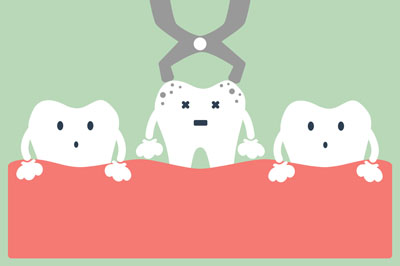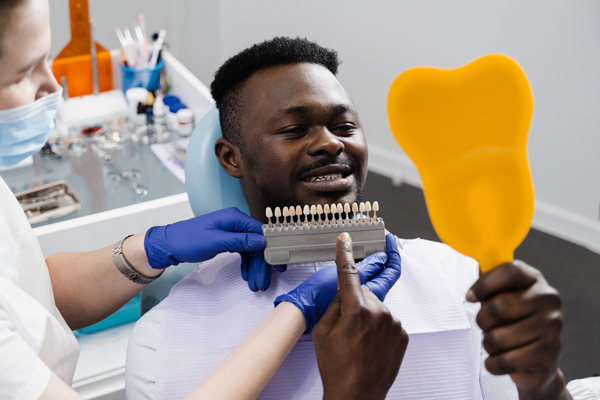Why We Perform Tooth Extractions
 Tooth extractions are sometimes necessary and a tooth sustains damage that hinders the functionality of the tooth. While it is true that adult teeth are designed to be permanent, there are a number of conditions that can lead to the need for tooth extractions. These include:
Tooth extractions are sometimes necessary and a tooth sustains damage that hinders the functionality of the tooth. While it is true that adult teeth are designed to be permanent, there are a number of conditions that can lead to the need for tooth extractions. These include:
- Severe damage
- An intense infection
- Overcrowding
- Disease
- Not enough room for wisdom teeth
Reasons that may cause the need for a dental tooth extraction
Patients often wonder what can cause the need for a dental tooth extraction. There are numerous answers to this question. As mentioned earlier, the most common reason for having to remove a tooth by extraction is damage. The next most common reason why people have to have their teeth removed stems from infection.
Tooth extractions are sometimes necessary when a root canal therapy fails to stop an infection or if the infection is exceedingly severe. Sometimes, an infection can penetrate the tooth, getting into the root and pulp of the tooth. The pulp is the inner, soft portion of the tooth. In order to clear up this kind of an infection, the dentist will prescribe antibiotics and then perform a root canal. The root canal typically removes the infection by removing the root and the pulp. In some cases, the infection is so severe that the root canal treatment is not effective and tooth extractions become necessary. Removing the tooth is a sure way to stop the infection and more importantly, stop the infection from spreading to other teeth.
Tooth Extractions Can Prevent Infections from Moving to Other Areas
Preventing an infection from spreading is another reason why we may have to do tooth extractions. If you have a compromised immune system, we want to make sure you are not at risk for a severe spread of any infection. Patients who are undergoing chemotherapy, for example, have a severely compromised immune system, which makes it critical that they do not have an infection. When a tooth is showing signs of becoming infected under these circumstances, Gateway Dental Dr. William Swann DDS will recommend extractions so as to prevent the infection from occurring.
Extractions commonly treat overcrowding in the mouth. With advanced orthodontics, we are often able to maneuver the teeth in a way that reduces the need for extractions. However, there are times when the mouth is just too crowded and tooth extractions are the only way to make sufficient space. If a tooth cannot come through the gums, also known as erupting, because there is not enough room for it, we may consider tooth extraction as a way to relieve the pressure. Similarly, if your teeth are too big and there is simply not enough room for all the teeth, we may recommend extractions so the teeth that are left are properly aligned.
Recent Posts
Tooth extractions are a common dental procedure to remove impacted teeth, address severe damage or decay, or prepare for orthodontic treatment. They can be done in a single appointment and do not take too long to heal from – especially with proper aftercare. Patients can follow a few key aftercare tips to help streamline their…
Tooth extraction can be frightening, but it is often necessary in order to keep a healthy mouth. There are a few important things to note about what comes after a tooth extraction, whether it be recovery or replacing the extracted tooth. In this article, we go over tooth extractions and what comes afterward. If you have…
While permanent teeth have the potential to last a lifetime, decay or damage can create the need to extract some of the teeth. In other instances, the mouth is crowded and extracting teeth will help to prepare a patient's mouth for orthodontics that properly aligns the teeth.Tooth extraction can also occur as a result of infection…
Dental extractions, also known as tooth extractions, are performed when teeth that are causing pain or infection need to be removed from the bone and socket. Many people need dental extractions without even knowing how serious the condition of their teeth is. If you are unsure how to know if you need dental extractions, we…


